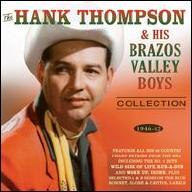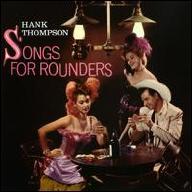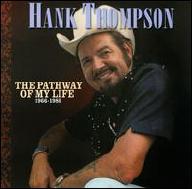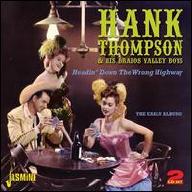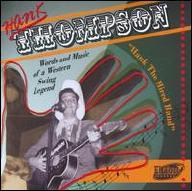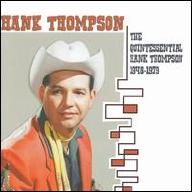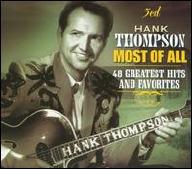Thompson scored his first major hit for Capitol in 1949 with the smash Humpty Dumpty Heart, the biggest of his six charting singles that year. In 1951, he hooked up with producer Ken Nelson, who would helm many of his most successful records. Those records included The Wild Side of Life, a monster hit from 1952 (over three months at number one) that became Thompson's signature song. Its cynical attitude inspired an answer record by Kitty Wells called It Wasn't God Who Made Honky Tonk Angels, which made her the first female artist in country music history with a million-selling record. Thompson continued to score hit after hit during the '50s, including 21 songs that reached the Top 20 on the country charts and five Top Tens in the year 1954 alone. A savvy promoter, Thompson devised a number of ways to make himself stand out from the crowd (even past his suave cowboy wardrobe): his early-'50s television show in Oklahoma City was the first variety show broadcast in color and he was the first country artist to tour with a sound and lighting system (put together using his Navy and collegiate experience), the first to receive corporate sponsorship, and the first to record in high-fidelity stereo. He also gave early breaks to musicians like guitar legend Merle Travis and female rockabilly pioneer Wanda Jackson. Toward the end of the '50s, Thompson began to create LPs that were more cohesive than just mere collections of singles plus filler; 1958's Dance Ranch and 1959's Songs for Rounders were Western swing/honky tonk masterpieces, especially the latter, which stirred up controversy with its groundbreakingly adult (some said decadent) lyrical content. In 1961, Thompson recorded the first live album ever released in the history of country music, the classic At the Golden Nugget.
After that burst of inspired creativity, Thompson's luck began to change: the public's taste was moving toward slick country-pop and the electrified Bakersfield sound and despite several more fine records, Thompson's relationship with Capitol ended in 1965. He first moved to Warner Bros., then ABC/Dot in 1968 (which became part of MCA in 1970). Thompson continued to record and tour and his singles charted regularly during the '70s all the way up to 1983, though he never matched the level of success he'd enjoyed in the '50s and early '60s. Even after the hits dried up, Thompson maintained a demanding concert tour schedule, playing all over the world. He was elected to the Country Music Hall of Fame in 1989. ~ Steve Huey, Rovi


